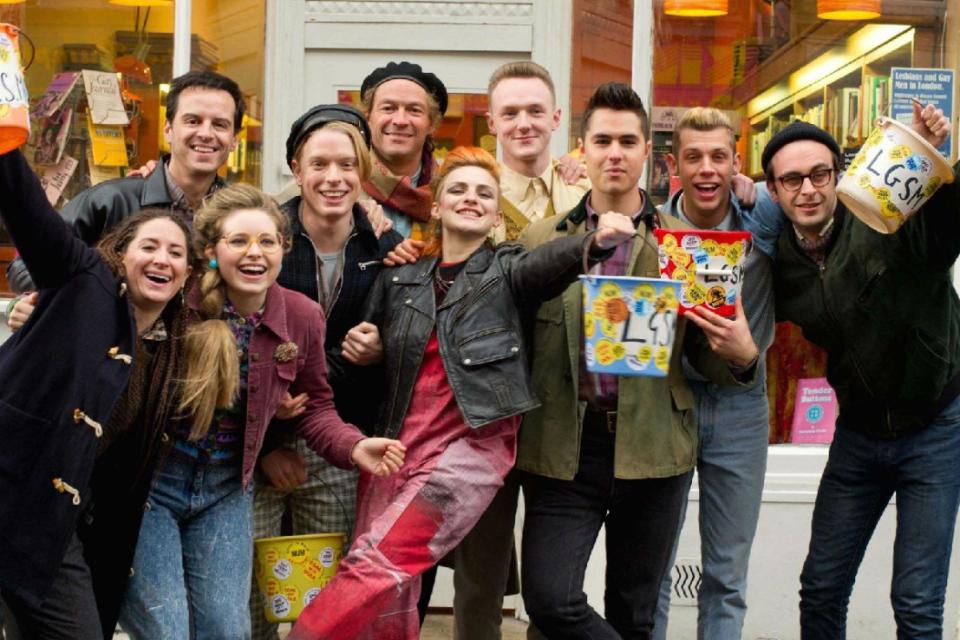Pride returns to the big screen for a 10th anniversary celebration

Incredibly, it’s been a decade since Matthew Warchus’ uplifting British drama Pride hit our screens. There was a degree of controversy at the time, with criticism of the 15 certificate of the film being draconian, and the US home release publicity removing any mention of gay content. A decade on, attitudes have grown a bit with hits like Love Simon, Bros, All Of Us Strangers, and TV show It’s A Sin receiving mainstream attention. However, as we enter Pride Month, it seems LGBTQ+ rights are a perennial bone of contention on the political stage. So, does this story of pride and prejudice still have something to say after all these years?
The story is based on real events from 1984, where an enterprising group of Gay and Lesbian activists visit a small Welsh mining village on the brink of collapse during the destruction of the British coal industry by Margaret Thatcher’s government. Initially, the group’s arrival stirs mistrust and prejudice among the townspeople, but they soon form a bond that would form the basis of the Lesbians and Gays Support the Miners campaign.
Director Matthew Warchus has been liberal with the facts of the story, forming a more audience-friendly underdog tale than really examining either the plight of miners or the Queer community. Nevertheless, it remains an uplifting film that illustrates the parallels of identity: for the miners, the loss of an occupation that has defined them for generations; for the activists, a fight to be themselves in the midst of violence and oppression. It’s disheartening that so many of the negative attitudes towards LGBTQ+ rights feel pertinent to today, but it is a polished introduction to Queer history (the London book shop featured, Gay’s The Word, is still on Marchmont Street, considered a place of pilgrimage to many).
It’s also notable how many of the cast have gone on to great success. George McKay, who plays closeted youngster Joe, gives the kind of heartfelt performance that opened the door to future projects like 1917. Andrew Scott was already flying high with Sherlock, but as traumatised prodigal son Gethin, he displayed the kind of simmering emotion that would make him an in-demand actor. Veterans Bill Nighy and Imelda Staunton add class as older Welsh villagers, while Paddy Considine seems to carry the weight of history as the campaigning miner who embraces the activists.
There have been more powerful portrayals of LGBTQ+ history in the years since, and an absence of significant Transgender characters is telling. However, Pride remains a touching and clever reminder of the fighters that slowly change the world.
• Pride’s 10th Anniversary screenings are in cinemas from 7 June

 Yahoo Finance
Yahoo Finance 